Description
Qu’est-ce que le Hojicha?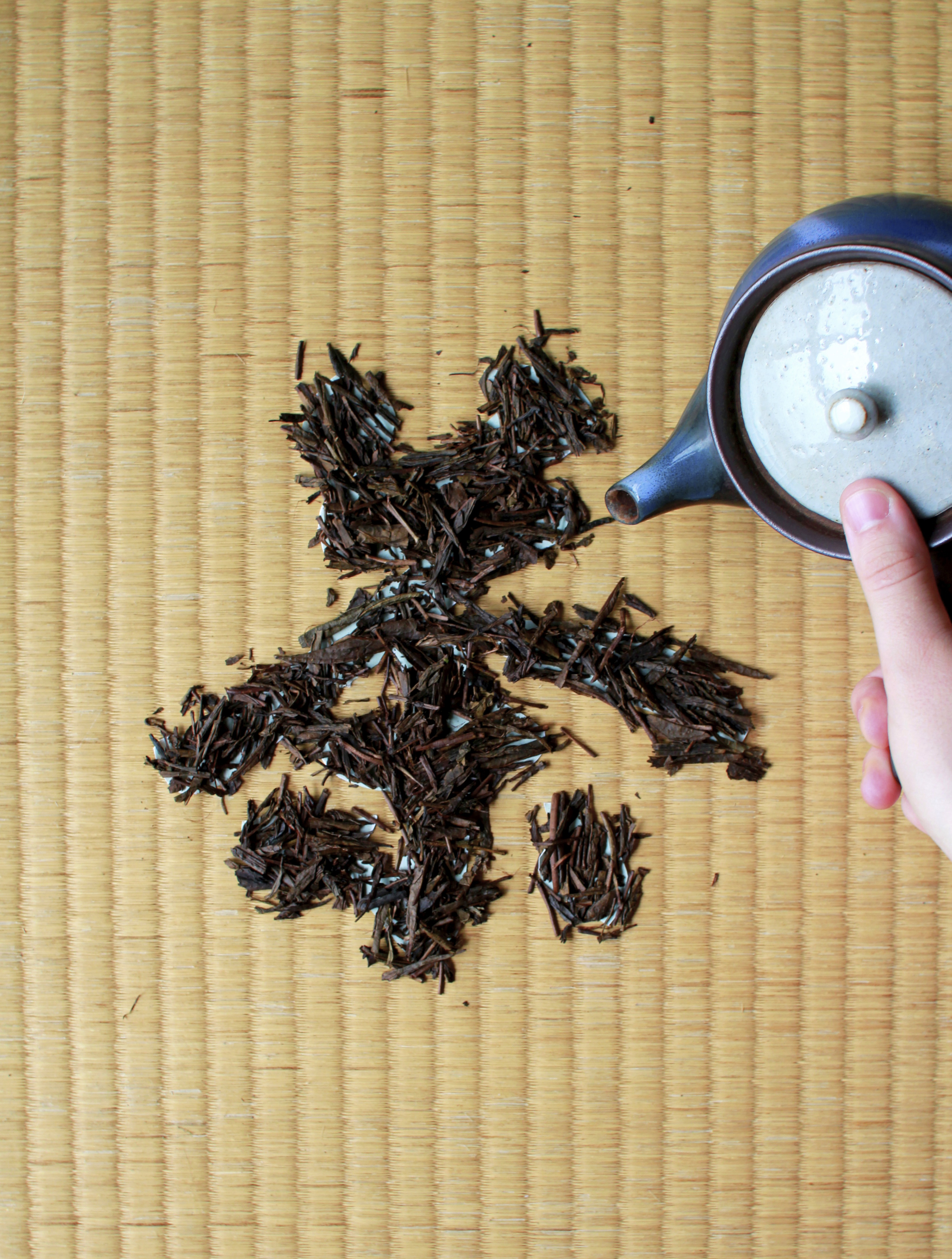
Bien qu’il ne soit pas de couleur verte, le Hojicha (焙じ茶 ), littéralement « thé torréfié », est tout de même considéré comme un thé vert. Sa couleur brune ambrée et son doux parfum de noisette grillé résulte de la torréfaction des feuilles.
Il est le plus souvent fabriqué à partir de thé vert de moyenne à basse qualité, souvent de grade Bancha, ou de thé de tiges Kukicha (Bocha).
Il est néanmoins tout à fait possible d’utiliser d’autres types de thé plus haut de gamme.
Pour torréfier les feuilles de thé de la façon la plus homogène possible, les producteurs ont souvent recourt à une technique de torréfaction au sable ou au charbon.
Lors du chauffage de thé à haute température, la caféine présente dans les feuilles est en grande partie dissoute. Le Hojicha une donc une boisson peu caféinée et facilement consommable tout au long de la journée et en soirée, et peut convenir tout autant aux enfants qu’aux personnes âgées.
Sa douce saveur grillée est aussi souvent appréciée des personnes souhaitant passer du café au thé.
Profil de l’agriculteur
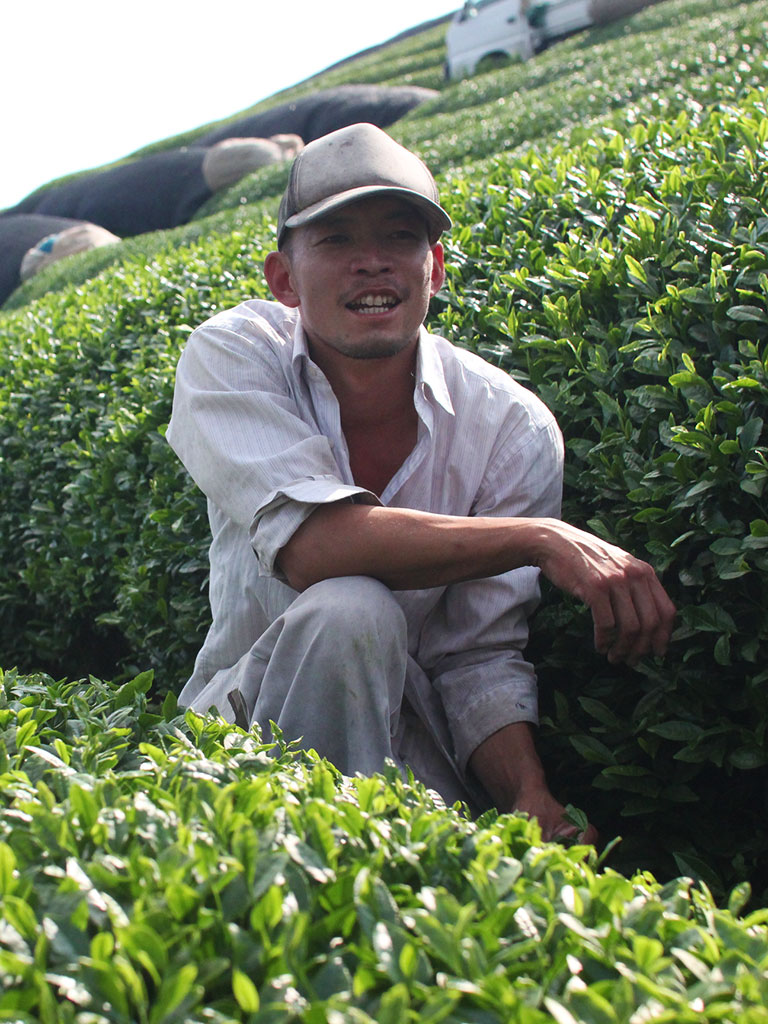
Akihiro Kita dit « Akky » est le président et l’exploitant agricole principal d’Obubu Tea Farm.
La création d’Obubu Tea est à l’origine de son désir de rendre le thé japonais accessible à tous !
Lors de ses années à l’université, Akky s’est fait engager en tant qu’employé saisonnier dans le village de thé de Wazuka et … ce fût le coup de foudre!
Il prit alors la décision de quitter l’université pour consacrer tout son temps à maitriser l’art de la culture du thé en devenant lui-même producteur.
Prenant conscience de l’envie et du besoin des agriculteurs indépendants tel que lui de partager la joie que procure une simple tasse de thé, il voyage depuis tous les ans durant la période hivernale pour diffuser sa passion pour le thé japonais avec des gens du monde entier.
Guide d’infusion du Hojicha

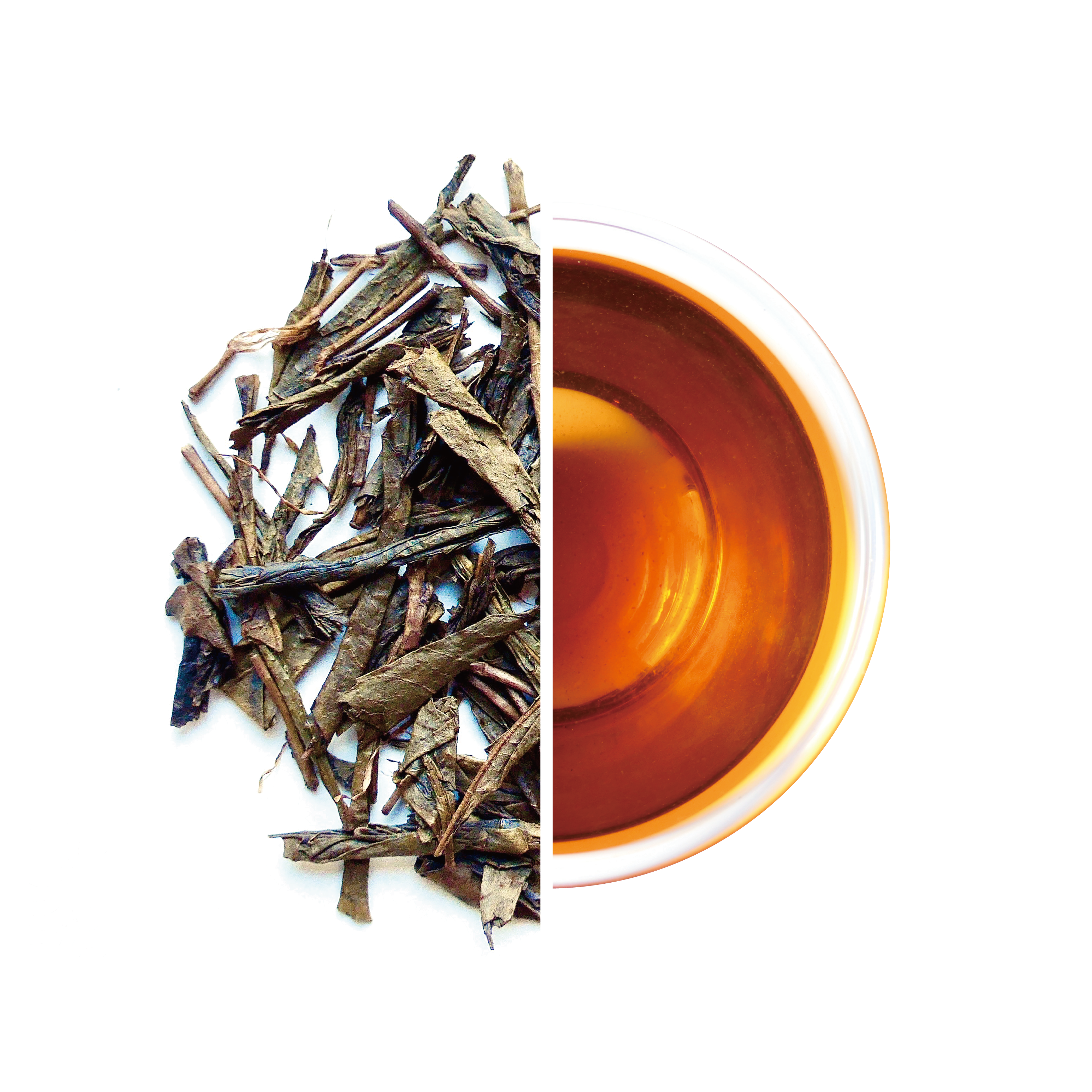
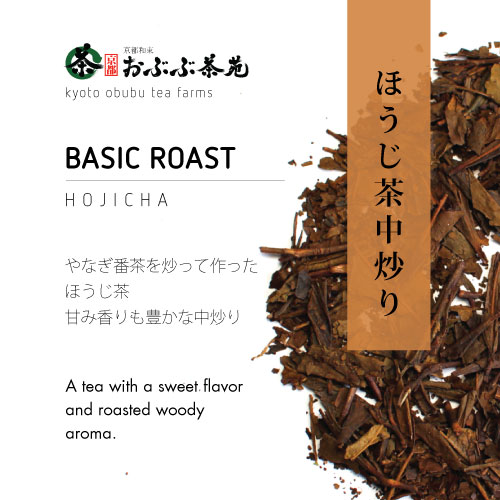
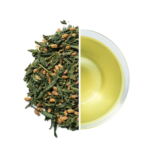
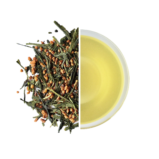
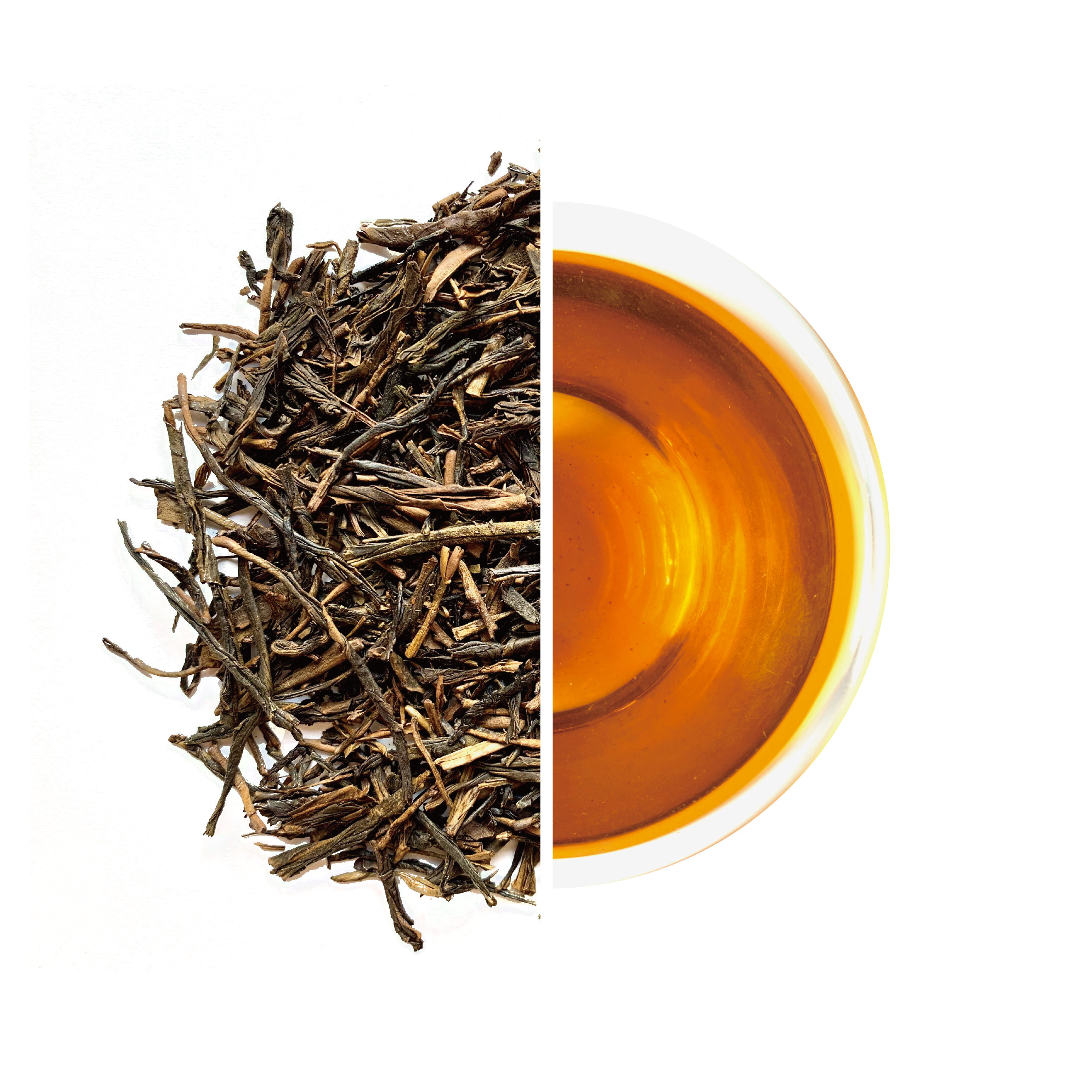
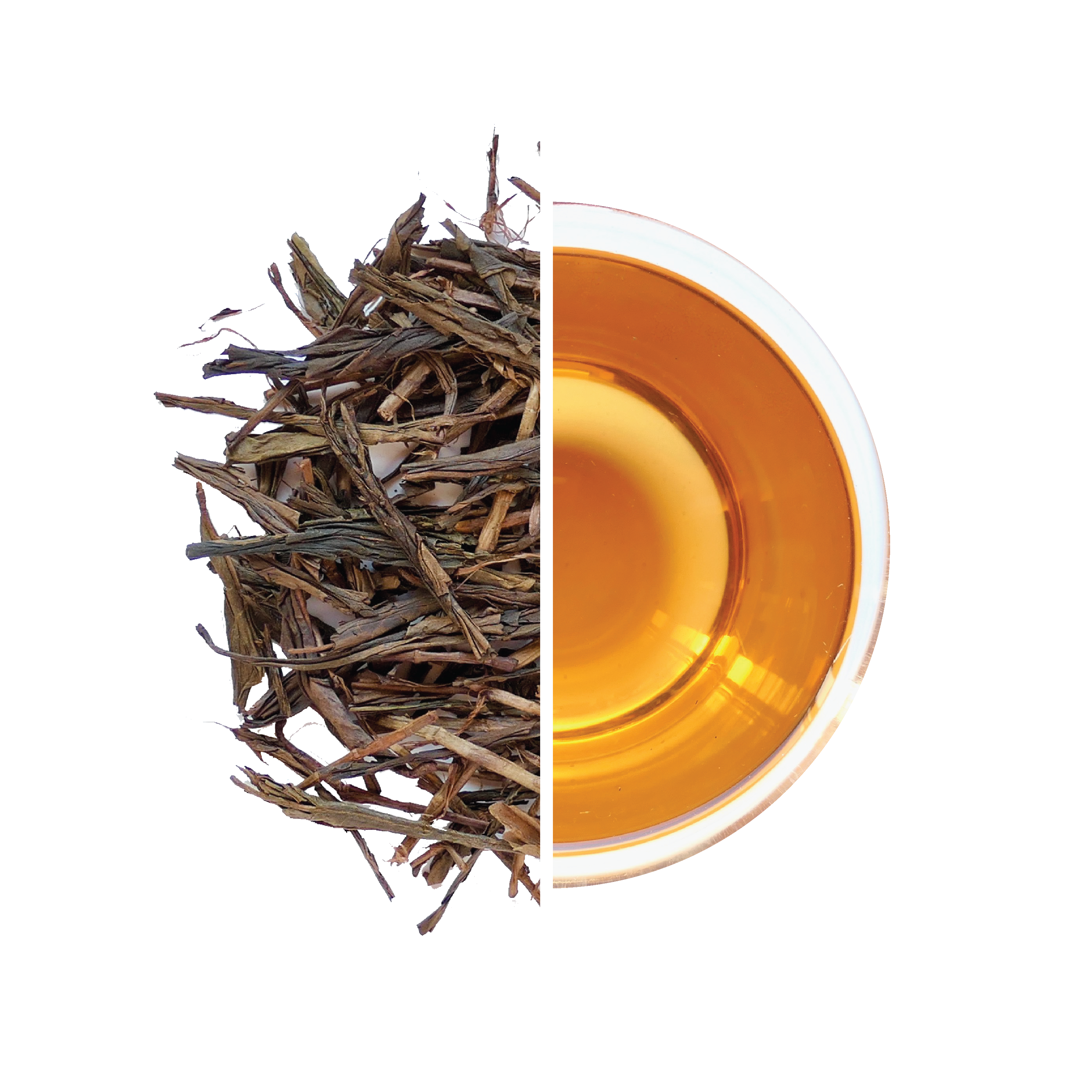
Obubu Tea –
Reviews by tea professionals and enthusiasts:
« Really strong, earth flavour. Only had the sample size of this one but really enjoyed it » – Jeremy, 2016
« The dry leaf aroma is smoky and peppery with notes of wood and salt.
The orange amber infusion has a rich and smoky aroma with notes of roasted nuts and wood and a hint of fruit. The taste is smooth and light, nutty and woody, savory and almost sweet with a long nutty finish » – Heather Porter, 2016
« Opening the bag of this tea I loved how rich and earthy it smelled. I couldn’t believe how dark the leaves were-everything about this tea seemed to say that this was a black tea.-even when brewed up. But alas, I looked it up on the website and it is indeed a green tea. Apparently it is virtually caffeine free due to the roasting process, so I saved this tea until after work around supper time. I’ve been trying to work 6 days/week in order to pay off my credit card and save money and although I do not work a physically demanding job, I do need a pick me up after work. This is nice because it’s “real” tea (i.e not a tisane) but without caffeine. I love the depth of flavour and the smokiness » – Kristal, 2014
« This tea is roasty and comforting. It isn’t as sweet as some houjicha I’ve had but it is really mellow. There’s a bit of sweetness in the aftertaste. The aroma gives hints of burnt cedar… and as usual with me and heavily roasted teas there is a note of dill. The flavor is of toast, a little bit nutty, mild and very relaxing. The wet leaves in the teapot smell like cigar tobacco. Now that I’ve noticed that and the tea has cooled some, I can definitely taste cigar smoke in the taste » – Lion, 2014
“I’m rapidly falling in love with Japanese green teas and hojicha in particular. This hojicha had a lighter color than the others that I’ve tried. It also had a slightly less roasty taste and was closer to other Japanese greens in my opinion.” – by Jennkay, 2013
“This isn’t as roasty or toasty as some Houjicha’s I have had but I’m ok with that! There is always a place and a time for a more gentle Houjicha. This is that time. Equal parts woodsy and nutty – this is satisfying and soothing. A delight!” – by TeaEqualsBliss, 2012
“I love a good Houjicha and this one is definitely good. Sweet and toasty and soothing too. The toasty notes give this a very autumnal feel. Nutty, sweet and delicious. There is very little astringency to this. I don’t really notice much of a smoky note, but more of a roasty-toasty kind of taste to it. The smokiness seems to arrive toward the end of the sip, and linger into the aftertaste.” – by LiberTEAS, 2012
“I prefer the darker roasts, but this is wonderful iced. Very tasty, toasty and refreshing.” – by Mel, 2011